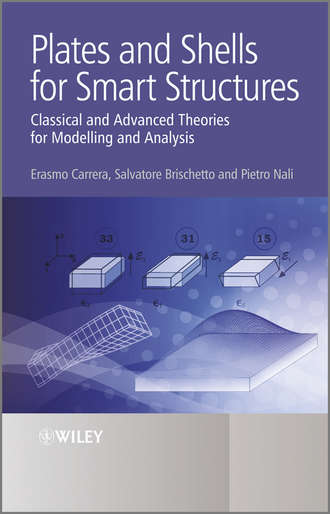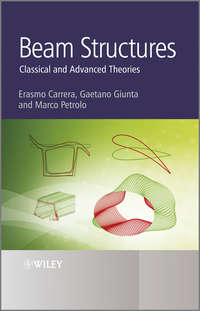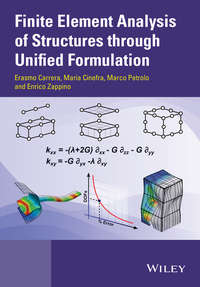
Полная версия
Plates and Shells for Smart Structures. Classical and Advanced Theories for Modeling and Analysis
Smart structures that contain embedded piezoelectric patches are loaded by both mechanical and electrical fields. Traditional plate and shell theories were developed to analyze structures subject to mechanical loads. However, these often fail when tasked with the evaluation of both electrical and mechanical fields and loads. In recent years more advanced models have been developed that overcome these limitations. Plates and Shells for Smart Structures offers a complete guide and reference to smart structures under both mechanical and electrical loads, starting with the basic principles and working right up to the most advanced models. It provides an overview of classical plate and shell theories for piezoelectric elasticity and demonstrates their limitations in static and dynamic analysis with a number of example problems. This book also provides both analytical and finite element solutions, thus enabling the reader to compare strong and weak solutions to the problems. Key features: compares a large variety of classical and modern approaches to plates and shells, such as Kirchhoff-Love , Reissner-Mindlin assumptions and higher order, layer-wise and mixed theories introduces theories able to consider electromechanical couplings as well as those that provide appropriate interface continuity conditions for both electrical and mechanical variables considers both static and dynamic analysis accompanied by a companion website hosting dedicated software MUL2 that is used to obtain the numerical solutions in the book, allowing the reader to reproduce the examples given as well as solve problems of their own The models currently used have a wide range of applications in civil, automotive, marine and aerospace engineering. Researchers of smart structures, and structural analysts in industry, will find all they need to know in this concise reference. Graduate and postgraduate students of mechanical, civil and aerospace engineering can also use this book in their studies. www.mul2.com



